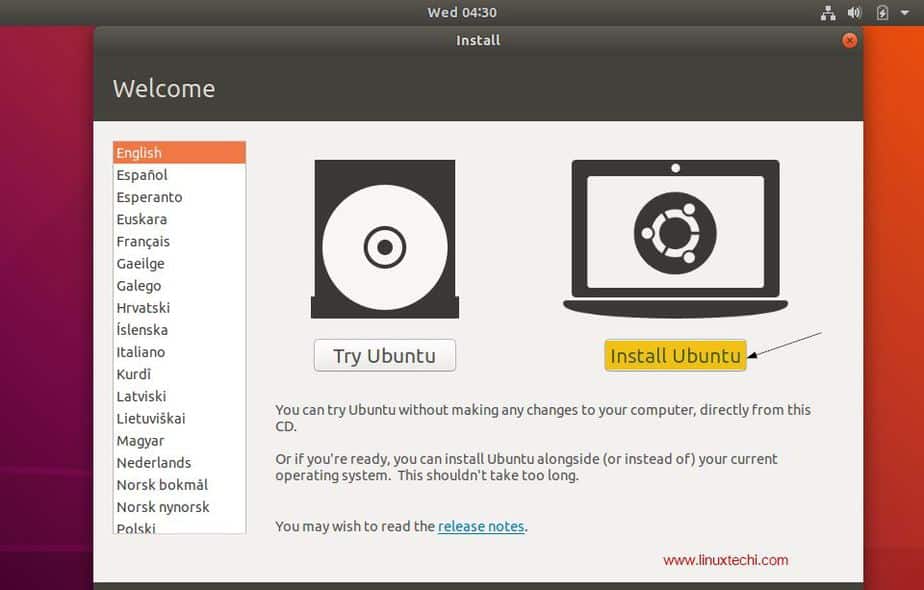- Install Ajenti Ubuntu 18.04 Bootable
- Install Ajenti Ubuntu Server 18.04
- Install Ajenti Ubuntu 18.04 Virtualbox
- Install Ajenti Ubuntu 18.04 Lts

Ajenti is a web-based control panel for managing systems (like Webmin, cPanel). It has a very beautiful and user-friendly interface. For personal use, Ajenti is freely available for under AGPLv3. For commercial use, you have to pay for a small amount regularly.
This article will help you to install the Ajenti control panel on Ubuntu and Debian systems. This article has been tested with Debian 10 (Buster) only.
- May 04, 2020 One Ubuntu 18.04 server configured with a non-root sudo user and firewall by following the Ubuntu 18.04 initial server setup guide. We recommend starting with at least 1 GB of RAM. See Choosing the Right Hardware for Masters for guidance in planning the capacity of a production Jenkins installation.
- May 14, 2019 Ajenti is a popular, lightweight, open-source, web based control panel for managing servers. It also comes with an easy-to-install addon package, called Ajenti V, that comes with plugins for managing emails, websites, domains and more. In this tutorial we’ll be installing Ajenti and Ajenti V on an Ubuntu 18.04 VPS.
- Ajenti is an open source, web-based control panel that can be used for a large variety of server management tasks. It can install packages and run commands, and you can view basic server information such as RAM in use, free disk space, etc.
Step 1 – Add Repository
Ajenti provides its own repository for installing its packages. Use one of the following commands to add Ajenti apt repository based on your operating system.
On Debian – Ajenti requires Debian 8 or later.
On Ubuntu – Ajenti requires ubuntu 16.04 or later. Previous releases might work with Python upgraded
This is a single SharePoint 2013 server that is crawling SharePoint 2010 farms. When looking at the search topology in the Search Service Application, I see: I. Sharepoint 2013 search index partition 0 warning.
Step 2: Install Ajenti Control Panel
Ajenti is a popular, lightweight, open-source, web based control panel for managing servers. It also comes with an easy-to-install addon package, called Ajenti V, that comes with plugins for managing emails, websites, domains and more. In this tutorial we’ll be installing Ajenti and Ajenti V on an Ubuntu 18.04 VPS.
After adding required repository in our system, Let’s install Ajenti control panel using following command.
Step 3 – Access Ajenti Control Panel
Install Ajenti Ubuntu 18.04 Bootable
Ajenti default works on port 8000 with secure HTTP (HTTPS). You will most likely receive a warning message indicating that there is an issue with the server’s certificate. There is no problem because Ajenti is using a self signed certificate. we just need to accept it and proceed.
Ajenti Login Screen –
Ajenti Dashboard –
Step 4 – Manage Ajenti Service
Ajenti provides init service to Start/Stop/Restart Ajenti service. Use one of the following commands as per requirements
In this article, we will have explained the necessary steps to install and configure Gdebi on Ubuntu 18.04 LTS. Before continuing with this tutorial, make sure you are logged in as a user with sudo privileges. All the commands in this tutorial should be run as a non-root user.
Gdebi is a lightweight deb packages installer available by default in Ubuntu Desktop. Gdebi lets you to install any deb packages without opening the Default software center in Ubuntu.
Install Gdebi on Ubuntu
Install Ajenti Ubuntu Server 18.04
Step 1. First, before you start installing any package on your Ubuntu server, we always recommend making sure that all system packages are updated.
Step 2. Install Gdebi on Ubuntu 18.04.
Install Ajenti Ubuntu 18.04 Virtualbox
The gdebi command line tool for Ubuntu 18.04 provides by the gdebi-core package. Run the install command with -y flag to quickly install the packages and dependencies:
Note that, on the Ubuntu desktop, you need to install the gdebi package if you want GDebi GUI:
Install Ajenti Ubuntu 18.04 Lts
Once you have the gdebi command available, run the following linux command to install example.deb DEB file. When prompted answer y to continue with the installation:
That’s all you need to do to install Gdebi package installer on Ubuntu 18.04. I hope you find this quick tip helpful. If you have questions or suggestions, feel free to leave a comment below.

